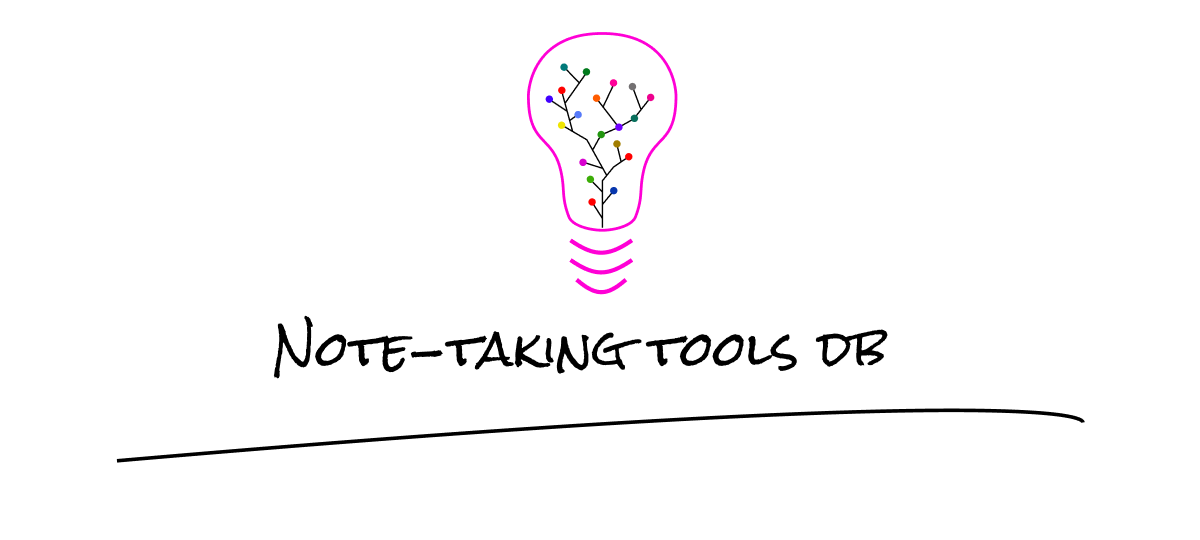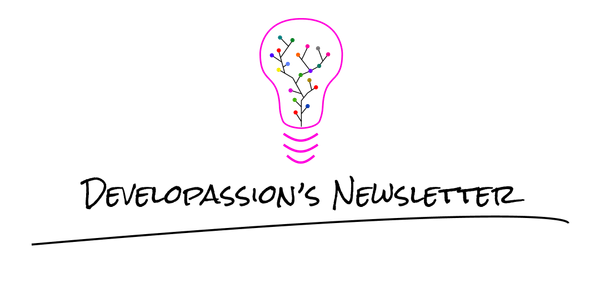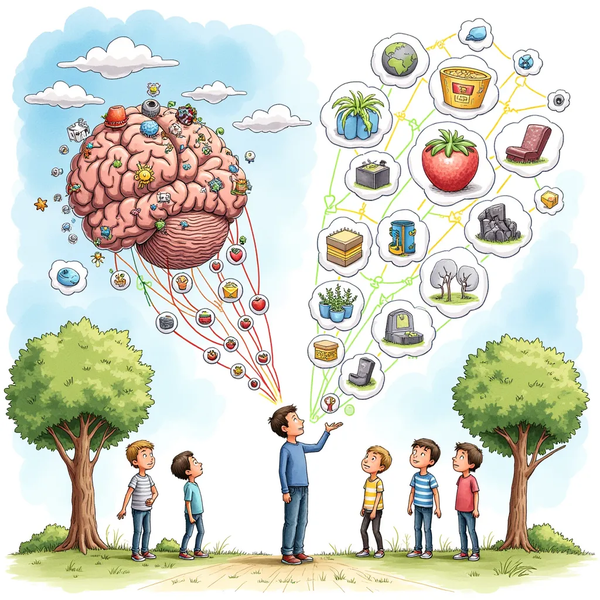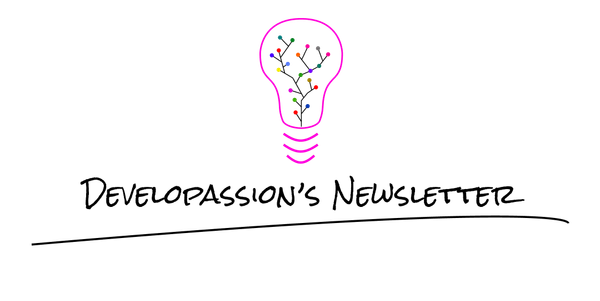In Defense of Using Fewer Tools
How Fewer Tools Can Enhance Personal Organization, Productivity, and Knowledge Management
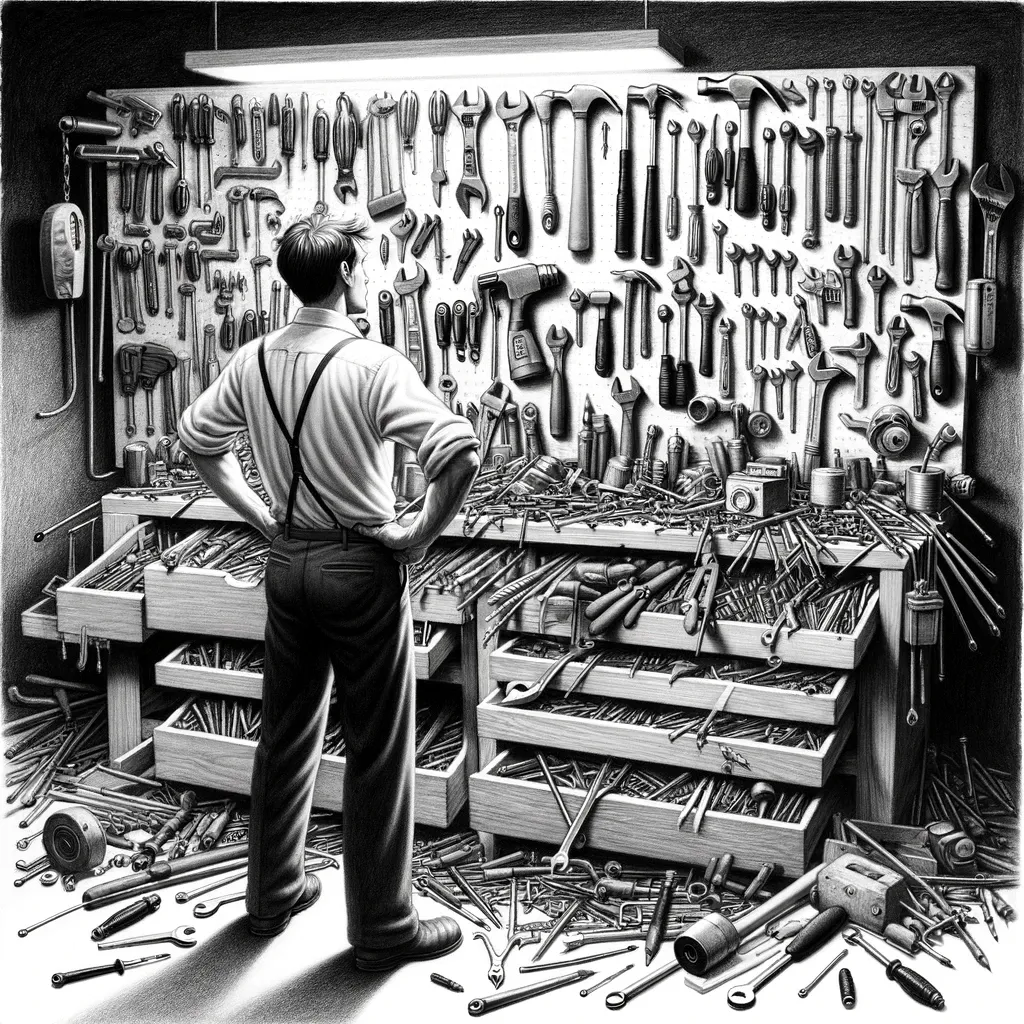
Using fewer tools can enhance Personal Organization, Productivity, and Knowledge Management. Here's why (and how).
Introduction
The quest for the perfect organizational and productivity tools seems endless. Many seem to unconsciously believe that equipping themselves with a multitude of apps and systems is the key to managing their knowledge, tasks, and schedules effectively. However, this approach can often lead to the opposite effect.
This article explores the idea that a simpler, more streamlined toolkit can enhance personal organization, boost productivity, and improve knowledge management.
The Paradox of Choice with Productivity Tools
The paradox of choice, a concept popularized by psychologist Barry Schwartz, suggests that an overabundance of options can lead to decision fatigue, anxiety, and ultimately, lower satisfaction. In the context of productivity tools, this translates to wasted time and energy in choosing and switching between multiple apps and systems, rather than focusing on the tasks at hand. Studies in decision-making have shown that beyond a certain point, each additional option only adds complexity and indecision to our lives.
Learning to choose is hard. Learning to choose well is harder. And learning to choose well in a world of unlimited possibilities is harder still, perhaps too hard — Barry Schwartz
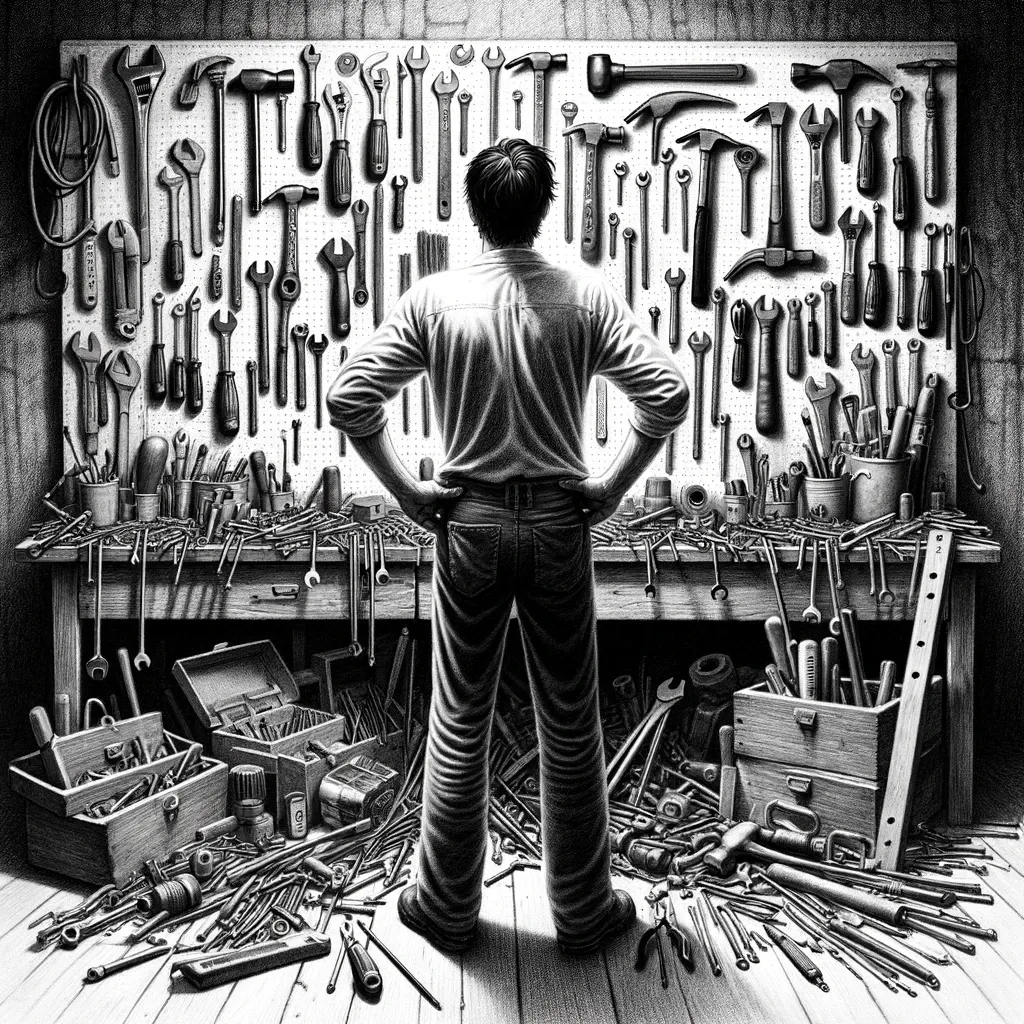
Integration and Compatibility Issues
Using a plethora of tools often leads to integration nightmares. Data from one app might not sync well with another, leading to disjointed workflows and productivity bottlenecks. For instance, a task management app that doesn't integrate seamlessly with your calendar can double the effort of scheduling and tracking deadlines. Such technical hurdles can consume valuable time that could be better spent on actual work.
People spend a ton of time trying to integrate various tools and often rely on clunky workflows that break at every opportunity (thanks to Murphy's Law). This often leads to stress, time and energy waste.

The Learning Curve and Its Impact
Every new tool comes with its own learning curve. While learning is beneficial, constantly adapting to new interfaces and functions can be counterproductive. It takes time to become proficient with a new system, and during this period, productivity often dips. This constant cycle of learning and adapting can hinder long-term productivity and detract from the work that matters.
The worst part is that you often wonder how to leverage the myriad of features that all your tools offer. This leads to analysis paralysis and, again, distraction from more valuable efforts.
Exploring tools and their features is often procrastination in disguise

The Overhead of using many tools
The more tools you use, the more updates and issues you have to deal with. That's just a fact. Apps change all the time for various reasons. Features get added, others get changed or deprecated. At the end of the day, the more tools you use, the more time you have to spend maintaining your overall toolkit, surrounding systems and workflows.
The biggest advantage of minimizing the digital tools you use is you have less to keep organized and up to date. You have fewer options about where something will go or what you will use to do a piece of work — Carl Pullein, Going Old-School
We are often influenced by the choices made by other people when it comes to tools. Unfortunately, given that there are as many opinions as people, it's very easy to be convinced that we are missing out when we're not using the latest and greatest. In reality, it's all just an illusion. Oftentimes, simpler tools get the job done, and adding more bells and whistles just adds needless overhead.
We have a tendency to look around at what others are doing and use them as a standard of comparison — Barry Schwartz, The Paradox of Choice: Why More Is Less

The Benefits of a Minimalist Approach
Embracing a minimalist approach when it comes to productivity and personal organization tools can have several benefits. It reduces cognitive load, allowing you to focus more on tasks rather than on managing multiple systems. A streamlined set of tools enhances efficiency and creates simpler and more focused workflows.
For example, a single, well-chosen tool for task management, which integrates well with your primary communication and data storage platforms, can cover most organizational needs without cluttering your digital workspace.
We are surrounded by modern, time-saving devices, but we never seem to have enough time — Barry Schwartz, The Paradox of Choice
The Advantages of Consolidation: Simplifying Focus and Creating Leverage
In the quest for efficiency, the strategy of regrouping different functions into a single tool is actually a winning approach. Consolidation offers a streamlined path to productivity. It reduces the cognitive overhead that comes with juggling between platforms and tools (e.g., different locations, interfaces, organization systems, etc). Every time we switch between different apps or systems, we pay a "context-switch cost" in terms of time and mental energy. This fragments our attention, forces us to create a new mental context, and leads to a decrease in our efficiency.
Using fewer tools leads to better user experience, more focus, and much less distraction. Removing the mental overhead associated with using many tools helps us remained focused on the task at hand and makes it easier for us to enter (and remain) in a state of flow, where our concentration is maximized, and our productivity is much higher.
Choose less and feel better — Barry Schwartz, The Paradox of Choice: Why More Is Less
In addition, consolidating tools simplifies workflows, and makes it easier to organize our information consistently. With everything stored in fewer locations, there's no need to integrate systems and cross-reference information. This saves time and ensures that the information remains coherent. It also helps to remove duplication. It also makes it easier to manage it all, and define clearer priorities.
I have personally decided to get rid of dedicated task management tools and to instead rely on the simple task management features offered by my note-taking tool of choice: Obsidian. One could think that this would be a constraint, but it's actually an enabler. Instead of worrying about how I can integrate tasks in my daily workflow, I simply maintain my lists and priorities next to my notes, and can seamlessly leverage both.
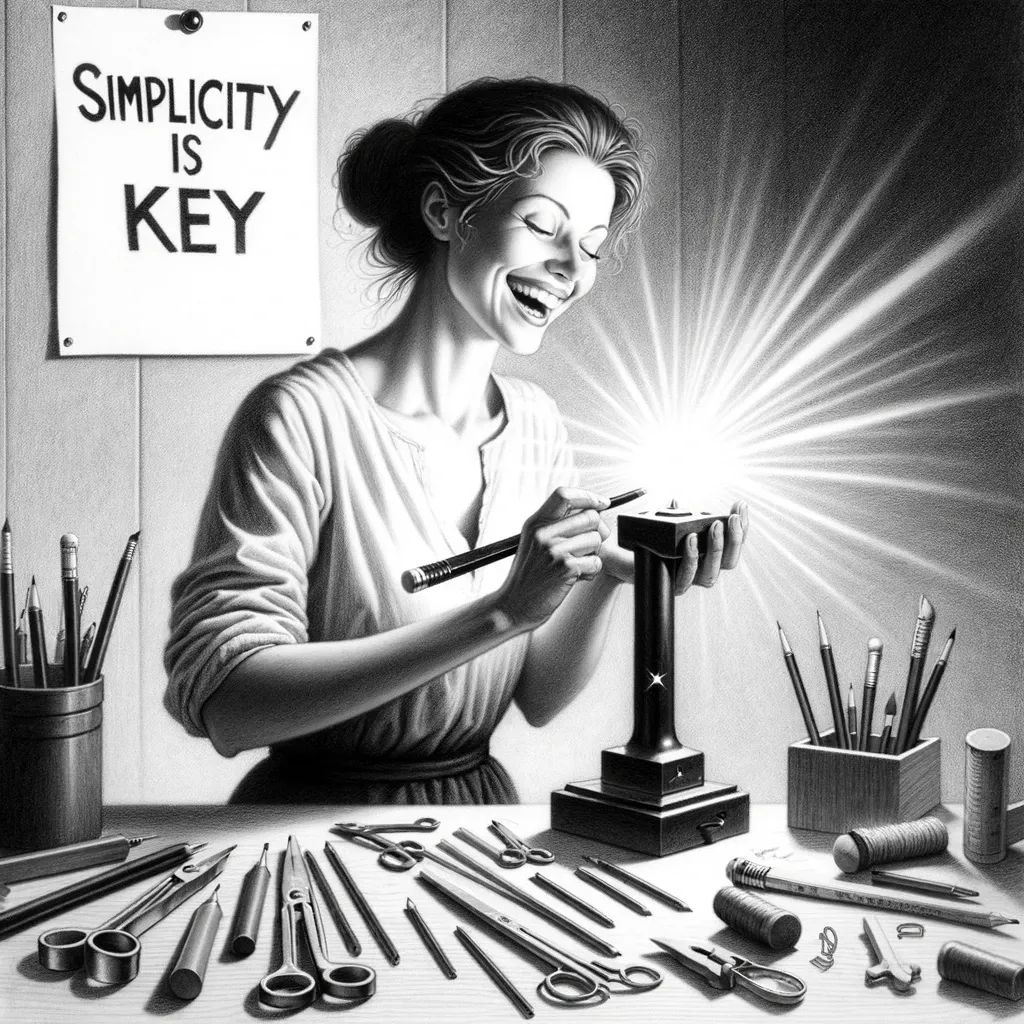
Regrouping different functions into a single tool is a testament to the value and power of simplicity in the digital age.
Your environment shapes who you are. The simpler your environment, the simpler your life.
Pros and Cons
Pros
- Reduced decision fatigue: Fewer tools mean fewer decisions about what tool to use for each task.
- Lower learning curve: You spend less time and energy mastering tools in your toolkit.
- Improved integration: A smaller set of tools is easier to integrate, ensuring a smoother workflow.
- More clarity: Less is more when it comes to tools. You don't have to spend as much time thinking about what goes where and why.
- Lower cognitive load: Simplifying your toolkit can declutter your mental space
- More focus: You spend less time switching contexts, and get more quality time to spend on what matters.
- Increased proficiency: Using fewer tools allows for deeper familiarity, leading to more efficient use.
- Less complexity: Fewer tools means fewer headaches.
- Less procrastination: Fewer tools imply less time and energy spent choosing, integrating, and fixing things.
- Easier collaboration: It's easier to collaborate with others when the ecosystem is simpler to grasp.
- Lower costs: You get to spend less money on acquiring tools and associated subscriptions
- Reduced your tech footprint: fewer tools is often better for the environment and your mental wellbeing.

Cons
While there are many benefits, it's also important to acknowledge the cons:
- Limited functionality: Fewer tools might mean missing out on some specialized features. In general, I consider that as a benefit, but in some cases it can be limiting.
- Dependency risk: Over-reliance on a limited set of tools can be risky if those tools fail or become obsolete. That's why it's important to choose tools that use Open Data formats and let you export your data easily, maximizing the chances of being able to migrate your data more easily.
- Initial adjustment: Transitioning to a simpler system might initially disrupt established workflows.
- Slower innovation: When you're using fewer tools, those generally innovate less than many tools combined can.
In my opinion, the pros significantly outweigh the cons, especially when the goal is long-term productivity and efficiency. But I'm biased, of course.
Practical Tips for Simplifying Your Toolkit
- Audit your current tools: Make a list of all the tools you currently use and evaluate their necessity. Sometimes we use things because we've been using those for as long as we remember, but we don't really need to
- Identify core functions: What are the main features you absolutely need. Determine the essential functions needed for your workflow and find tools that cover multiple needs.
- Test and evaluate: Experiment with a reduced set of tools and note any changes in your productivity and stress levels. Oftentimes, you'll realize that you didn't need all those bells and whistles.
- Seek integration: Opt for tools that integrate well with each other to create a seamless workflow.
- Pay attention to data portability: The ability to export and migrate your data somewhere else is really important. Don't overlook this! Moreover, avoid vendor lock-in if whenever possible.
- Find satisfaction in using less: Using less simplifies your workflows and life. Be satisfied with less!
To satisfice is to settle for something that is good enough and not worry about the possibility that there might be something better — Barry Schwartz, The Paradox of Choice: Why More Is Less
Conclusion
While it's tempting to chase the latest app or system in the pursuit of productivity, often, less is more. By reducing the number of tools in your personal organization and knowledge management systems, you can streamline your workflows, decrease stress, and increase productivity. It's time to embrace the power of simplicity and focus on what truly matters!
That's it for today ✨
About Sébastien
I am Sébastien Dubois. You can follow me on X 🐦 and on BlueSky 🦋.
I am an author, founder, and coach. I write books and articles about Knowledge Work, Personal Knowledge Management, Note-taking, Lifelong Learning, Personal Organization, and Zen Productivity. I also craft lovely digital products . You can learn more about my projects here.
If you want to follow my work, then become a member.
Ready to get to the next level?
To embark on your Knowledge Management journey, consider investing in resources that will equip you with the tools and strategies you need. Check out the Obsidian Starter Kit and the accompanying video course. It will give you a rock-solid starting point for your note-taking and Knowledge Management efforts.
If you want to take a more holistic approach, then the Knowledge Worker Kit is for you. It covers PKM, but expands into productivity, personal organization, project/task management, and more:
If you are in a hurry, then do not hesitate to book a coaching session with me:




